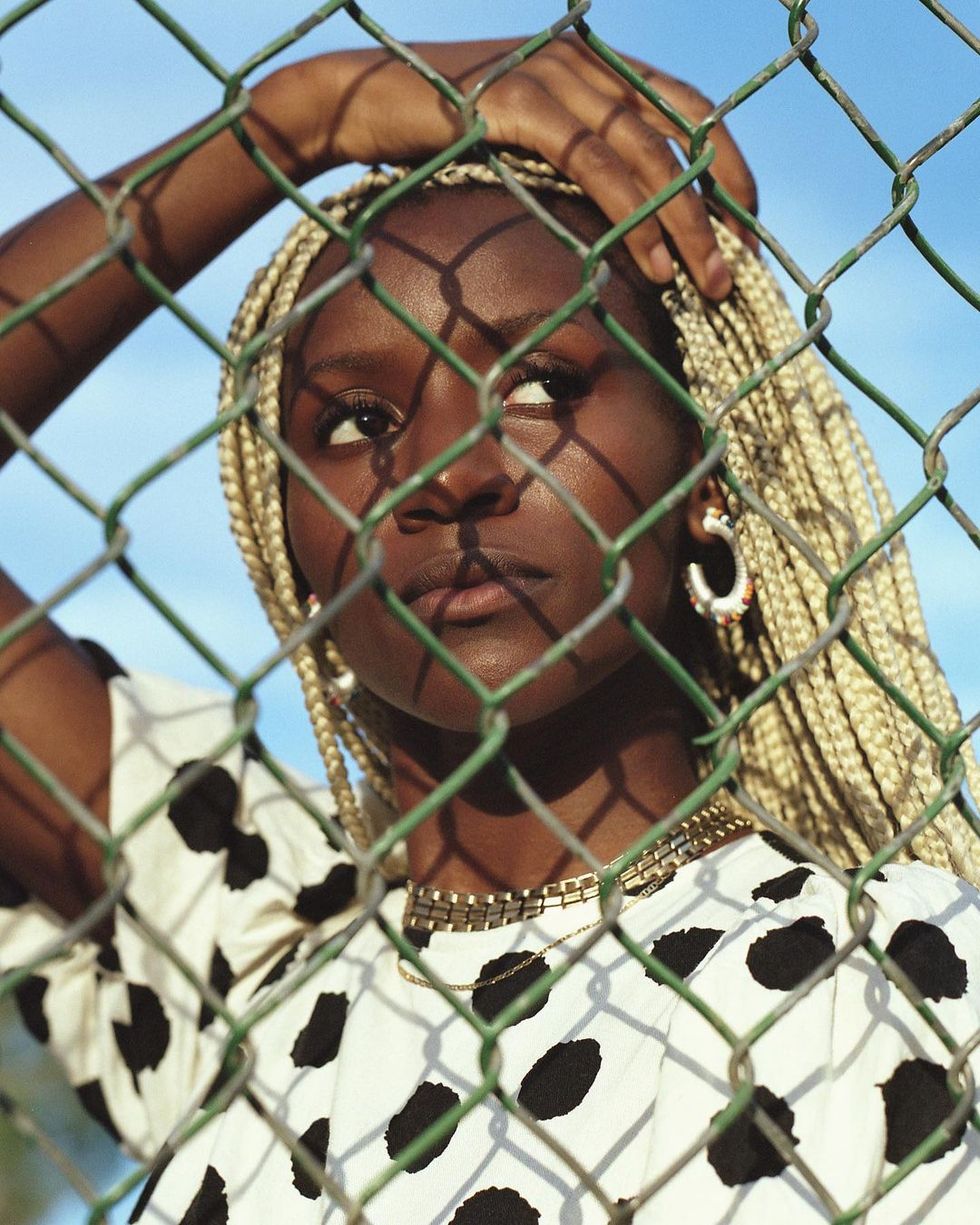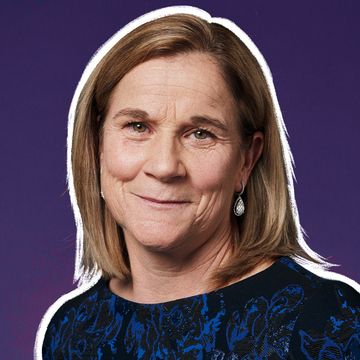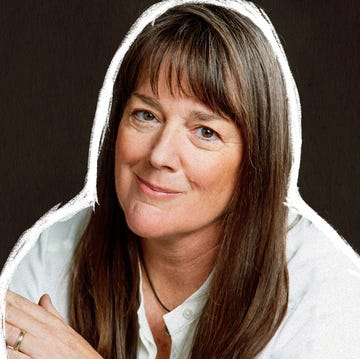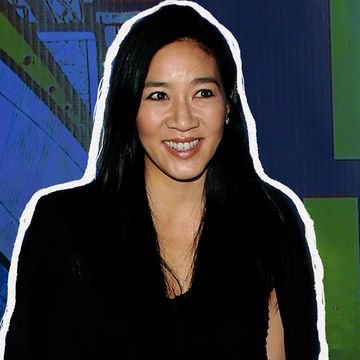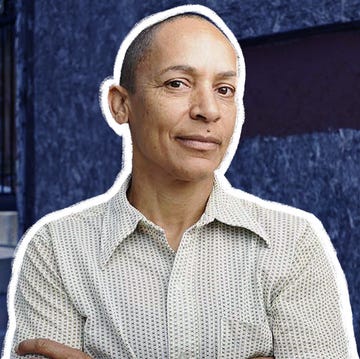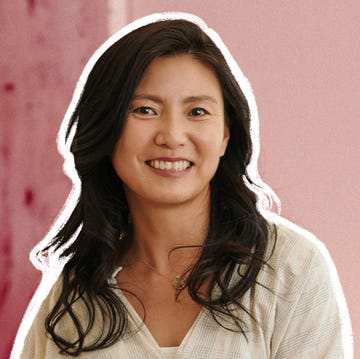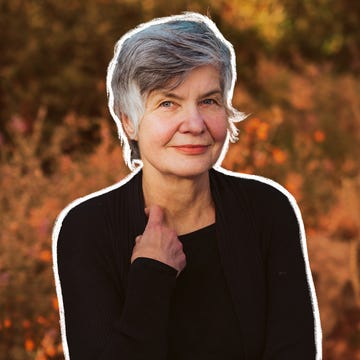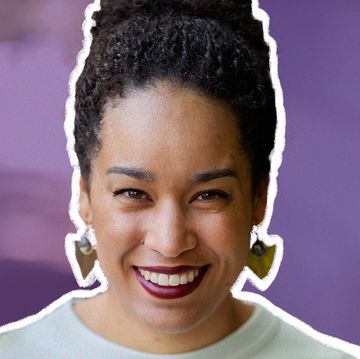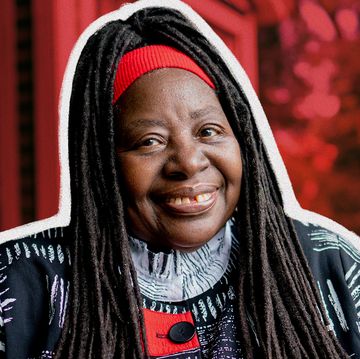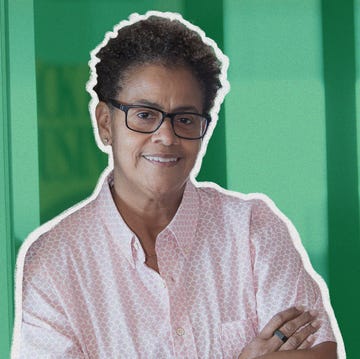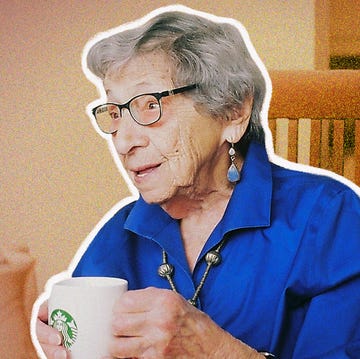In the ongoing Shondaland series Head Turners, we meet interesting women from every facet of life who are crushing it in their careers. From artists and tech mavens to titans of the boardroom, these women are breaking barriers, and they’ll share how you can too.
Flo Ngala has always had a keen eye for discovering the beauty and uniqueness of life. From the moment her curious hands grabbed a camera for the first time in eighth grade, her perspective on the world changed. She now regularly expresses herself through striking still images of subjects ranging from young figure skaters practicing in Harlem to movie star Letitia Wright getting dolled up for the Oscars in Hollywood.
Ngala, who made history earlier this year as the first Black woman photographer to cover the Met Gala for Vogue, has been capturing celebrities and other subjects through her lens for more than a decade, transforming a personal passion into a full-blown career with clients like Nike, Adidas, and Reebok. With a sharp and focused style, she cunningly captures the vibrancy of her subjects, often with an eye toward symmetry.
Growing up in Harlem as the first-generation daughter of Nigerian and Cameroonian parents, Ngala graduated from the City College of New York in 2017 and quickly landed her first big gig: shooting Atlanta rapper Gucci Mane’s first post-prison visit to New York City. From there, her roster grew with iconic portraits of Cardi B, Wizkid, Burna Boy, Simone Biles, Venus Williams, and Stacey Abrams. Besides Vogue, her work has also been featured in GQ, Billboard, Rolling Stone, and Essence.
Shondaland recently spoke with Ngala about how light inspires her work, why she’s relearning how to be herself, and what those interested in photography need to excel at their craft.
CHÁNTELLE ADANNA: What artistically inspires you?
FLO NGALA: Naturally, I’m always looking around, always observing. That’s a huge part of how my mind works. Seeing faces, strangers, and scenarios that are different than average — unique and special in their own way — really sparks my interest. A lot of my inspiration comes from trips on the train or just walking around running errands. Specifically, living in New York City, there’s many ways to see the uniqueness and beauty of life in real time.
That’s how I first fell in love with photography in the first place: by being an observer, going to school, and taking pictures. People are still what really inspire me. I’ve always been attracted to portraiture because I feel like there’s something special that happens when a photographer captures a moment of humanity and essence. That’s really what I go for in my work.
On the more technical side, I’m always inspired by light. It’s crazy that every single day we wake up [and] have this natural source of light. The sun has been doing its job every day forever, and I don’t think we realize how amazing that is. Being a photographer, there’s multiple situations where a 30-minute delay on set can cost you the light needed for a specific shot. I’m consistently inspired by how the sun does its own thing, how it creates a canvas for photographers [yet] still finds time to illuminate the entire world.
CA: How did your upbringing shape you?
FN: I definitely think that being raised by strong, Black female and male figures stimulated me in many ways. My parents were both immigrants from West Africa who came to the U.S. to, honestly, just get it poppin’. They were not playing any games. In the early 2000s, my dad and mom had one of the biggest beauty supply and hair stores, called R.T. Ngala and Son Enterprise in Harlem.
They put me in ice skating. My sister was in chess and cheerleading. My older brother was in different clubs as well. My parents always tried to give us the space to explore and be expressive. I think that’s how ultimately photography manifested itself for me. From a young age, I was used to being the minority in spaces, which allowed me to trust myself, use my mind, and bank on my confidence every time.
CA: What does a day in the life of Flo Ngala look like?
FN: Honestly, my life these days is very hectic because I do too much. I think right now I’m trying to find the balance between scaling my brand and being a good businesswoman. That’s a line that I walk very finely with very thin stilettos on. I’m always figuring it out, and I know that I have a reputation that [precedes] me and an image that’s bigger than me.
With that said, in this digital social media age, people are allowed to be themselves with no official blueprint for how that’s done, so self-trust is essential. More recently, I’m learning to give myself grace while measuring the daily capacity that I have to truly show up for myself.
CA: How did you become the first Black woman photographer to shoot the Met Gala for Vogue?
FN: In March, I was hit up about the Met Gala by a photo editor at Vogue. I had to send in additional photos that were proof of my event work before I was officially given the job. Vogue only had four photographers at the Met Gala, and I was one of those four. I was the only woman and Black woman in that crew. In that moment, it became very special, not only because it was the Met Gala, but because two Vogue staff [members] confirmed with me that there’s never been a Black woman that’s shot the Met Gala for them.
CA: What projects are you proudest of to date?
FN: Figure skating for The New York Times. All of Cardi B’s behind-the-scenes work, getting tagged in anniversary photos and videos of some of her biggest projects, where I was the only photographer on set. Also, I shot Wizkid at the end of last year, which was a game-changing moment for me because he’s an artist that I love, respect, and admire.
CA: What words of advice would you give to anyone looking to follow in your footsteps in photography?
FN: Be yourself. Stay the course. These days, I’m relearning how to be myself. Previously, I was a bit more fun, and then corporate America happened. Figure out what you’re saying and who you’re speaking to. Find out what the bigger vision is for you. Is it more than just taking nice pictures?
There’s a different touch and feel that you can pull from someone’s images or portfolio when there’s a bit more passion there. Make sure you’re aware of where you’re speaking from, and let that guide you in the work you create.
Chántelle Adanna is a Los Angeles-based writer and writing coach who has contributed to iHeartRadio, Sheen Magazine, The Root, and Bakersfield News Observer. Follow her on Twitter @chantelleadanna.
Get Shondaland directly in your inbox: SUBSCRIBE TODAY

